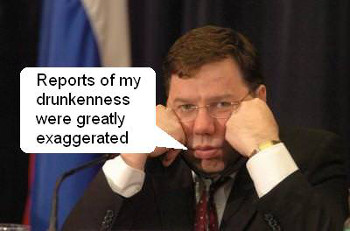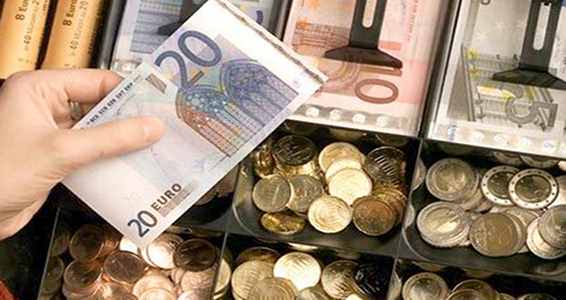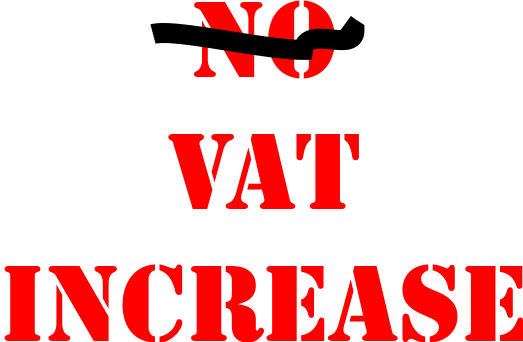This Week In Business
Print’s not dead. How Hearst is using social to power-up its papers.
Analizo launches Europe's first algorithm-as-a-service, bringing robo-investing capabilities to the wealth management industry
Applegreen wins prestigious European SME Award
Mimaki Tx300P-1800 already proving a Fashionable Choice
Irish Stock Market
Applegreen wins prestigious European SME Award
Star of 2016 award won by Applegreen Applegreen, the #1 motorway service area operator in…Irish Stock Exchange Quarterly Statistics Q3 2016
Q3 2016 statistics show over 35,000 securities listed on Irish Stock Exchange markets…ISE shows growth
Irish Stock Exchange listing figures grow to over 35,000 securities Quarterly statistics…Irish Stock exchange extends to 28 companies
Dalata Hotel Group joins the ISE’s Main Securities Market Dalata Hotel Group (Dalata),…#IPOready companies graduate from ISE leadership programme
High-potential companies have graduated from #IPOready #IPOready is the Irish Stock…Quarterly Statistics - Irish Stock Exchange
Q1 2016 statistics show 34,382 securities listed on ISE markets. Main headlines: Listings…ISE The Place To Be!
Irish Stock Exchange wins No.1 slot in Great Place to Work Awards. Would you like a great…Venn Life Sciences Joins The ESM
Adding a euro quotation for investors. Venn Life Sciences, the growing Contract Research…
World Economy
Print’s not dead. How Hearst is using social to power-up its papers.
The Newspaper business is dead? Don’t tell that to Hearst. By Brett Lofgren | September…Press Release From ISE
ISE and NASDAQ OMX announce intention to bring Dual ISE/US Market Access to Irish…Sappi First-Quarter Profit Falls
Company says result is due to paper and pulp price decline. Sappi Ltd., the world’s…How global manufacturing is changing.
Ireland is changing and the savvy business has to be aware of changing global trends.3D…High Consumption Foodstuffs in DRC:
High Consumption Foodstuffs in DRC: Where Are the Surpluses and Deficits? By Dr…Xerox wins print contract for UK Government
Xerox to deliver cost efficiencies in print services to UK public sector The UK Cabinet…Disposable income drops
New figures just released show that household disposable income in Ireland fell by 0.4…Ireland’s richest 300 worth €62bn
The 300 richest people in Ireland are now worth more than €62bn. The figure is staggering…
Business & Finance
Applegreen wins prestigious European SME Award
Irish Stock Exchange Quarterly Statistics Q3 2016
ISE shows growth
Irish Stock exchange extends to 28 companies
#IPOready companies graduate from ISE leadership programme
Quarterly Statistics - Irish Stock Exchange
World Stock Market
Hans‐Ole Jochumsen re‐elected as FESE President
Euro rates fixed – but for how long?
GLOBAL STOCKS and COMMODITIES
Snapshot of Irish shares and European stocks over Christmas
Markets surge on Central Banks' intervention
U.S. Stocks Update Wednesday 23rd November 2011
Economy, Tenders & Invenstment
Prior information notice of tender.
Tender Opportunity Here at DPNlive, we are always looking for business opportunities for…Print tenders
Want to do the printing for the Houses of the Oireachtas? Below is a table of three…
- Details
- Written by Administrator
- Parent Category: Business and Finance
- Category: World Economic Updates
 Visa Europe said that Friday 23rd December was the busiest day ever for shopping across Europe. The payments technology company said it processed almost 50 million transactions, worth more than €2.6 billion, throughout the day as people hunted for their last minute Christmas purchases.
Visa Europe said that Friday 23rd December was the busiest day ever for shopping across Europe. The payments technology company said it processed almost 50 million transactions, worth more than €2.6 billion, throughout the day as people hunted for their last minute Christmas purchases.
Throughout the day, shoppers used their Visa cards to spend almost €2 million every minute, with more than 70% of this spend on Visa debit cards. This record spend equates to year-on-year growth of approximately 9%.
According to historical trend data from Visa Europe, the company said that the busiest shopping day has always fallen on the 23rd December. However, Visa Europe said that the busiest ever shopping hour actually falls outside of the busiest shopping day. With Christmas Eve taking place on a Saturday this year, Visa Europe predicts the biggest volume of transactions will take place in the hour from 12:00 until 13:00 this Christmas Eve as shoppers take advantage of the last work-free day before the festivities begin and they relax ahead of Christmas Day.
Visa Europe’s processing centre, which has the ability to manage over 2,500 transactions per second, will be well equipped to deal with the expected 1,200 transactions taking place every second during the busiest hour across Europe as Dr Steve Perry, Commercial Director at Visa Europe commented:
“We’ve already seen strong growth in online sales and we expected that the 23rd would be the busiest ever shopping day for the amount of money spent on Visa cards, increasing by 9% compared against last year. While the 23rd was the busiest day in total, we are predicting that the hour when the most number of transactions will take place will fall on Christmas Eve between 12.00pm and 13.00pm where we anticipate a surge in transactions.”
Visa bases its predictions on up to the minute spending data and previous years’ Christmas spending trends. Over €1 in every €8 spent in Europe is on a Visa card, making this data one of the most reliable indicators of trends in consumer spending.
www.visaeurope.com
Copyright © 2011, DPNLIVE – All Rights Reserved
- Details
- Written by Administrator
- Parent Category: Business and Finance
- Category: World Economic Updates
 Linda is the proprietor of a bar in Cork. In order to increase sales, she decides to allow her loyal customers - most of whom are unemployed alcoholics - to drink now but pay later.
Linda is the proprietor of a bar in Cork. In order to increase sales, she decides to allow her loyal customers - most of whom are unemployed alcoholics - to drink now but pay later.
She keeps track of the drinks consumed on a ledger (thereby granting the customers loans).
 Word gets around and as a result increasing numbers of customers flood into Linda's bar.
Word gets around and as a result increasing numbers of customers flood into Linda's bar.
Taking advantage of her customers' freedom from immediate payment constraints, Linda increases her prices for wine and beer, the most-consumed beverages.
Her sales volume increases massively.
A young and dynamic customer service consultant at the local bank recognises these customer debts as valuable future assets and increases Linda's borrowing limit.
He sees no reason for undue concern since he has the debts of the alcoholics as collateral.
At the bank's corporate headquarters, expert bankers transform these customer assets into DRINKBONDS, ALKBONDS and PUKEBONDS.
These securities are then traded on markets worldwide.
No one really understands what these abbreviations mean and how the securities are guaranteed.
 Nevertheless, as their prices continuously climb, the securities become top-selling items.
Nevertheless, as their prices continuously climb, the securities become top-selling items.
One day, although the prices are still climbing, a risk manager (subsequently of course fired due his negativity) of the bank decides that slowly the time has come to demand payment of the debts incurred by the drinkers at Linda's bar.
However they cannot pay back the debts.
Linda cannot fulfil her loan obligations and claims bankruptcy.
DRINKBOND and ALKBOND drop in price by 95%. PUKEBOND performs better, stabilising in price after dropping by 80%.
The suppliers of Linda's bar, having granted her generous payment due dates and having invested in the securities are faced with a new situation.
Her wine supplier claims bankruptcy, her beer supplier is taken over by a competitor.
The bank is saved by the Government following dramatic round-the-clock consultations by leaders from the governing political parties (and vested interests).
The funds required for this purpose are obtained by a tax levied on the non-drinkers.
- Details
- Written by Administrator
- Parent Category: Business and Finance
- Category: World Economic Updates
Bob Tallent
The Synergy Group
1st Dec 2011
 Here’s a scenario for you: You’re the sole owner of a limited company and have no employees. Every once in a while you find yourself a bit short, so you let the company pay for some of your personal expenses, such as dry cleaning, gym membership and house cleaning services. You’re not depriving a business partner or any employees of a salary so, in essence, it’s your money to do with as you like. Right!
Here’s a scenario for you: You’re the sole owner of a limited company and have no employees. Every once in a while you find yourself a bit short, so you let the company pay for some of your personal expenses, such as dry cleaning, gym membership and house cleaning services. You’re not depriving a business partner or any employees of a salary so, in essence, it’s your money to do with as you like. Right!
Wrong.
Due to the fact that your business is a separate legal entity, you need to think of it as if it were another person completely. For example, you wouldn’t just walk into the book shop and take money out of its cash register for your lunch, would you? No. And you wouldn’t just stick your hand into your friend’s handbag to take money out of her wallet–you’d ask for permission. Similarly, for tax and CRO reasons, you need to “ask” your limited company for permission to take funds for your personal use.
How do you do this?
By writing a cheque to yourself from the business account for your salary (or expenses), depositing the check into your personal account, and using the funds from there. Or maybe by using a petty cash system!
Having the company pay directly for your personal expenses can get you into a whole heap of trouble. If your limited company is sued by creditors for non payment, it could be found that you “stripped” the company of the money needed to meet these obligations by using company money for your personal expenses. As a result, a court might consider your actions to be fraud. A court then could ignore the limited liability protection your company is supposed to provide and leave you personally liable for all company debts (known in America as “piercing the corporate veil”). Another grave danger is when business owners use one bank account for both business and personal expenses. This becomes known as “commingling funds” – also a no go area, and also grounds for disregarding the personal asset protection that a company can provide. In a limited company situation I have never heard of this happening, but I have as sole traders (business names).
Even for businesses operating as sole traders, where you take personal liability, it’s a far better practice to open a separate bank account for your business activities. Look at it this way: It really doesn’t take that long to write yourself a cheque to deposit into your personal account. Plus, you’ll receive two important benefits:
- You’ll start to develop the kind of business mindset your company needs in order to grow, and
- You’ll save a great deal on accounting fees, because the separation between business and personal (and what’s legitimately tax-deductible) will be that much clearer.
Copyright © 2011, DPNLIVE – All Rights Reserved
- Details
- Written by Administrator
- Parent Category: Business and Finance
- Category: World Economic Updates
Paul Appleby ODCE
A number of files have already been submitted to the DPP by Appleby’s office on Anglo Irish and there is growing pressure on him to make progress on this situation before he has to return to the High Court on the issue next January.
Appleby told a conference of over 200 compliance officers working in the banks which was held in Dublin on Monday 14th November that, new legal rules in force since August now made it mandatory for people working in banks/financial institutions to report any serious wrong doings to the Gardai if they suspected an offence had been carried out. The rules included protection for whistle-blowers but extremely strong penalties for people making false accusations. He also said that the old banking system of dealing with fraud internally had to change.
- Details
- Written by Administrator
- Parent Category: Business and Finance
- Category: World Economic Updates
What will be the effect of an increase in VAT?
Bob Tallent
The Synergy Group
17th November 2011
 As I have said in the article ‘opportunity or threat’, the leaked document 'Ireland: memorandum of economic and financial policies' reveals that the government is to raise the top vat rate when Minister for Finance Michael Noonan presents the budget on 6th December next. Michael Noonan has not confirmed this as of yet because he has said that decisions have not been made yet.
As I have said in the article ‘opportunity or threat’, the leaked document 'Ireland: memorandum of economic and financial policies' reveals that the government is to raise the top vat rate when Minister for Finance Michael Noonan presents the budget on 6th December next. Michael Noonan has not confirmed this as of yet because he has said that decisions have not been made yet.
However, according to a document presented to the budget committee of the German lower house of parliament yesterday (Wednesday 16th), Ireland will raise the top rate of value-added tax (VAT) to 23%, generating an additional €670 million.
According to the leaked memorandum "After successive budgets in which income tax burdens were raised significantly, we have decided to focus on indirect tax increases to deliver the bulk of the 1 billion euros additional tax effort required in 2012 ...
"To this end, the VAT rate is being raised by 2 percentage points to 23%, which will generate 0.67 billion euros."
"I don't know how anybody could have a document like that. The government hasn't decided its budget yet," said Labour Party Leader Eamon Gilmore speaking to reporters.
The document lays out a plan for a further 100 million euros to be raised through a reform of capital gains taxation while around 160 million euros will be generated by a previously announced household charge. The remainder in fresh revenue will be raised through increases in other forms of indirect taxation.
Social welfare is targeted for the further €1.45 billion savings and it said reforming entitlements, reducing unemployment traps and improving the targeting of social supports would account for cuts to social welfare.
Another change to the updated memorandum shows that the government is to fund the struggling credit union sector to the tune of €250 million by the end of the year.
The updated memorandum of understanding between Ireland and its creditors, which presented to Germany's budget committee ahead of publication, said a broadening of the personal income tax base would form part of the 2013 budget. The memorandum also states that the government may substitute another measure for the proposed change to income taxes in consultation with its EU, European Central Bank (ECB) and International Monetary Fund (IMF) "troika" of lenders.
Since the government has received the €85 billion bailout nearly a year ago under the FF government, it has so far passed all of its bailout reviews. Even allowing for this, the troika has said that significant risks remain.
"The growth outlook could deteriorate significantly in the months ahead, if Ireland's main trading partners do slide into a recession," the document said. "This would complicate the authorities' consolidation effort markedly."
Bank losses may also be higher than expected due to continuing weaknesses in the property market and higher-than-expected unemployment, and a risk of consolidation fatigue setting in, especially if private sector involvement in other countries is seen as a "quicker" and less painful way to address the high debt problem.
This all could mean continued tightness by the banks, continued or renewed lack of public confidence therefore less cash flowing in the retail sector. And less cash flowing in the retail sector bounces down through all sectors. With one exception! Those who are supplying the retail sector with POS material stand to gain handsomely, so long as they get their 4P’s correct. Equipment suppliers may have to find innovative ways of helping their customers to fund the machinery.
Artisan Ireland
The Sweetest Thing
The Sweetest Thing. By Tom Byrne.Scratch the surface of Irish industry and you will find…Donegal’s Liquid Gold – Pure Rapeseed Oil
Donegal’s Liquid Gold – Pure Rapeseed Oil The healthy cooking oil favoured by Celebrity…A simply rural life at Waterfall Farm
by Hannah Bolger People are keen to connect with where their food is coming from…Tastefully Yours
Artisan producers of a delightful range of handmade chutneys, preserves, and…MILEEVEN Bees--Sarah's Honey
Mileeven Fine Foods was established in 1988 by my mum, Eilis Gough from her hobby of…Glebe Brethan Farmhouse Cheese
by David Tiernan In 1987 we won supplier of the Year Award from Drogheda and Dundalk…Graham Roberts - Connemara Smokehouse
My name is Graham Roberts and I live and work in a small fishing village, Aillebrack near…CIARA’S PANTRY: It's a Family Affair
By Ellen Neumann13th April 2012 Ciara O’Dowd grew up in the hospitality industry. Her…
















